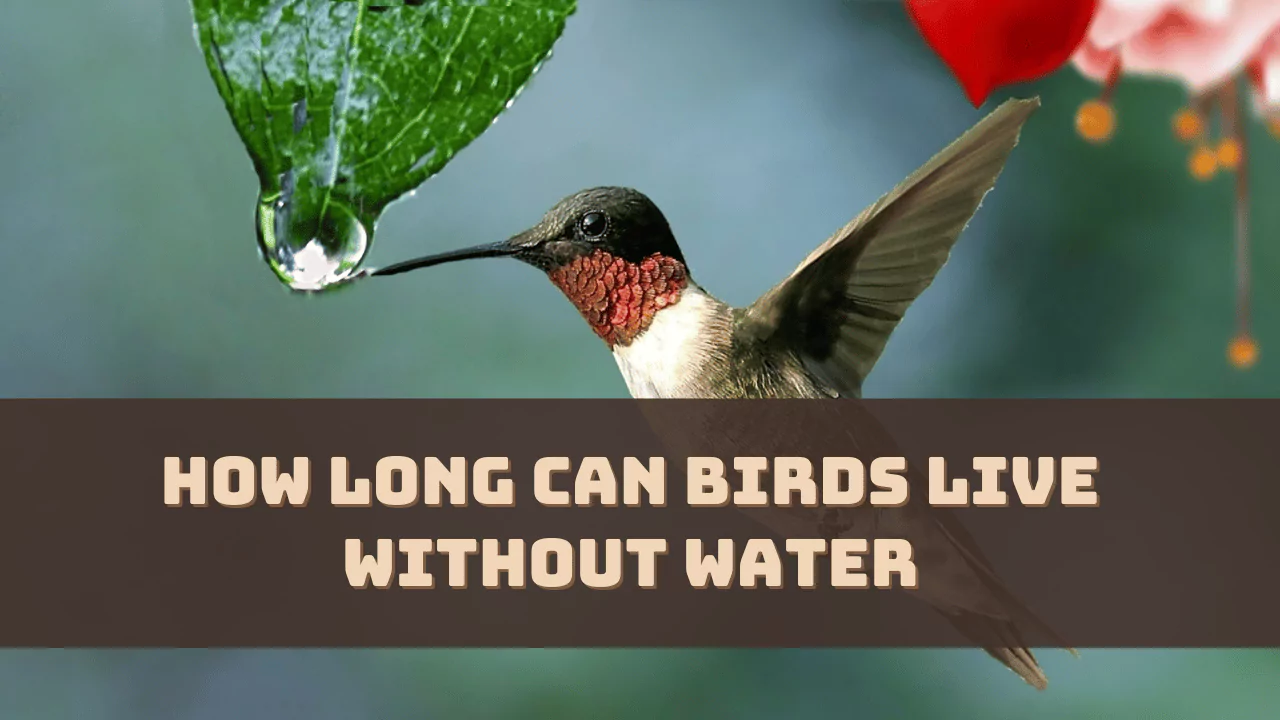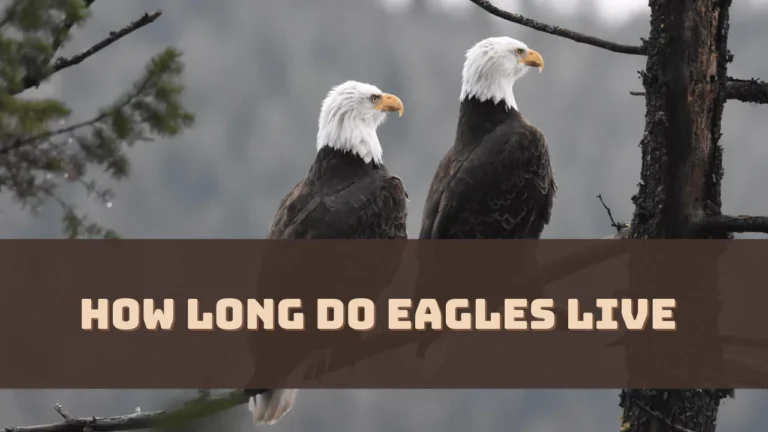The duration of time a bird can live without water depends on species, habitat, size and environment. Some birds can go for several days without having access to fresh water, whereas others are more likely to drink water every hour to stay hydrated. Small birds are usually seen to rehydrate twice a day and mostly they can survive 1 to 2 days without water. So, let’s get to know how birds can live without water for a long time.
Can Birds Live Without Water?
Birds can live without water for a certain duration of time, but alternatively, they have to obtain the hydration from food they eat, such as insects or fruit which will help them to meet the regular metabolic pathway. Instead of water, they intake moisture-rich fluids or food. However, the ones kept in captivity need a regular supply of clean drinking water at all times to stay hydrated.
It has been seen birds in dry climates have a higher requirement of water to stay hydrated as the temperature is high so the dehydration rate is also higher. In this case, if the bird does not get proper access to water it may die within 24 hours or less. Also, lack of water weakens the immune system and due to chemical exposure the bird can get infected with infections and slowly die.
What Type of Water Does a Bird Need?
There are two main types of water that a bird needs to maintain their physiological function:
- One is free-standing freshwater which they can get from a bird bath and this is meant for drinking and bathing. This keeps the bird hydrated and removes dust and other pests from their feathers.
- The other form of water is through food sources when a bird consumes fruits, insects, vegetables or grains to gain moisture content from them which helps them to get proper nutrition.
Some birds are also seen to get water from the environment by the intake of dew or rain droplets from the plants or other surfaces. The whole idea is to get enough fluid to stay healthy and maintain optimal well-being.
What is the Use of Water in a Bird’s Daily Life?
The key component for both survival is water which helps in regulating temperature, maintaining proper electrolyte levels, processing calories and overall maintaining the physiological balance. Other than this, birds also use water to clean their feathers which removes excess dirt, oil and pests. Birds drink water to stay hydrated which helps in metabolic processes, such as digestion and excretion. It also alleviates stress when they have to go through long flights or bear extreme temperatures and without proper access to water a bird can die.
Factors that Decide a Bird Can Survive Without Water
Here are the factors that decide whether the bird can survive without water:
Diet
Based on the diet a bird intakes, it can survive for a few hours without water. If a bird intakes nutritious food which is rich in moisture such as vegetables, fruits and seeds, then it can get the requisite water from the food itself. However, if the bird intakes moisture-lacking food, then it can become dehydrated and weaker over time due to starvation and dehydration.
Environment
Based on the environment, a bird can survive without water. During cooler temperatures or when the environment has enough moisture, birds do not feel thirsty or dehydrated or need to drink water frequently. However, if the temperature is too harsh, then it can reduce the amount of time a bird can last without water. In a dry-air environment, a bird needs access to water to stay hydrated. Moreover, if the bird recedes in high altitudes it also loses moisture quickly due to the low air pressure and so they need water frequently.
Mobility
If the climate is warm with low humidity then birds can go without drinking water for a few hours. However, if the temperature is hot with high humidity, then they can fall into the risk of dehydration. Also, if the bird has to migrate, in this situation, they have to find water sources to stay hydrated, when compared with a stationary bird. A non-migratory bird needs less access to water as they can receive precipitation which keeps them hydrated.
External Stressors
Based on external stressors, also has an impact on whether a bird can survive without water. If there are predators around or the bird is physically hurt or has to flee from the area suddenly, then it requires energy expenditure, which needs water to restore metabolic function. Also, if they are in an environment which has chemical pollutants such as herbicides, pesticides or oil spills, then it exposes them to toxicity or health problems and the bird has to survive without water for the time being. The pollutant can also get accumulate in the fatty tissues of birds which decides how long the bird can stay without water.
How Often Should the Water in Bird Baths Be Changed?
You have to provide fresh and clean water to the birds and so as a bird enthusiast, you need to regularly replenish the water in the bird bath. It is also advised to at least clean the bird bath once a week or twice, based on the traffic or footfall on it. Also, while you are cleaning the bird bath you must scrub it down with warm water which removes the algae growth or other contaminants.
What Should be Done if a Dehydrated Bird is Found?
If you find a dehydrated bird, then the best way out is to contact a local wildlife rescue group for assistance. Try not to feed or hydrate the bird yourself without consulting with professionals as any incorrect step can endanger its life. Also, the bird might feel stressed out due to your presence, so you have to approach slowly or try to observe them from a distance while you are waiting for aid to arrive.
Can You Add Electrolyte to Water?
Yes, you can add electrolytes to the bird water, especially if they are stressed out due to the heat. It would help to replenish the lost minerals and salt. Electrolyte solution would also support the bird’s metabolism and nervous system and help in muscle recovery after strenuous activity.
How Long Can a Baby Bird Go Without Water?
A baby bird can survive 24 hours without water based on their age and environmental condition. However, if it is a young hatchling, then it needs water every several hours and also if the temperature is high, then it needs frequent hydration or access to fresh clean water.
What are the Signs of a Dehydrated Bird?
A dehydrated bird has sunken eyes, dry and flaking feathers and signs of listlessness. They also show signs of dry beak and mouth and there is decreased appetite and energy level. You would find the skin on the chest feels stretched when you pinch it.
What are the Physiological Changes in Birds to Reduce Water Loss?
Birds have developed a distinct physiological adaptation to counter water loss, such as – urine concentration, reduced saliva production, temperature regulation, intake of moisture-enriched food, preening feathers to reduce cutaneous water loss and behavioural changes.


